|
From the IAMS President
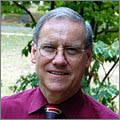 “Warm” greetings from New Haven, CT! The countdown for Toronto 2012 has now begun. Anticipation is growing, and as detailed attention is given to the variegated dimensions of the conference, we are looking forward to what will be, for many, a once-in-a-lifetime event. This issue of IAMS Matters provides a kind of “Who’s Who” for the event, introducing our plenary speakers and Bible study leader and naming the members of the Toronto hosting committee. There is also a fundraising update, updates from several Study Group coordinators, as well as detailed guidelines for those hoping to apply for a subsidy. Take note that all subsidies are contingent upon: (1) current IAMS membership, and (2) presentation of a paper in one of the study groups. “Warm” greetings from New Haven, CT! The countdown for Toronto 2012 has now begun. Anticipation is growing, and as detailed attention is given to the variegated dimensions of the conference, we are looking forward to what will be, for many, a once-in-a-lifetime event. This issue of IAMS Matters provides a kind of “Who’s Who” for the event, introducing our plenary speakers and Bible study leader and naming the members of the Toronto hosting committee. There is also a fundraising update, updates from several Study Group coordinators, as well as detailed guidelines for those hoping to apply for a subsidy. Take note that all subsidies are contingent upon: (1) current IAMS membership, and (2) presentation of a paper in one of the study groups.
I am pleased to report that Dr. Gerald Anderson’s manuscript on the history of IAMS is now complete. The title is Witness to World Christianity: The International Association for Mission Studies 1972–2012. It includes chapters contributed by John Roxborogh (Documentation, Archives, Bibliography, and Oral History); John M. Prior, SVD (Bible Studies and Mission), and Christoffer Grundmann (Healing and Mission). OMSC will be publishing 1,000 copies of the book, at IAMS expense. IAMS will hold the copyright. The book will be distributed in the registration packets in Toronto, and then sent by mail to non-attending members following the conference. Members who wish to obtain additional copies may do so for $10.00 plus postage per copy. Non-members will be able to purchase copies for $15.00. Sometime in 2013 the book will be made available as a PDF document.
Three final bits of gentle advice:
- If you have not already done so, please visit IAMS’s Toronto 2012 web site: sites.google.com/a/iams2012.org/toronto-2012/
- If you have not yet registered, do so as quickly as possible — space is limited. www.regonline.ca/iams2012
- Finally, no visa letters can be issued for members whose dues are not paid up. So please make sure your IAMS membership is current!
A blessed 2012 to you and yours from your executive!
Jonathan Bonk
President
Email: bonk@omsc.org
From the General Secretariat
 Happy New Year greetings to you all from the Secretariat. We are now in the year of the Toronto Conference (and the Olympics!). Please ensure that all abstracts are in by end of January so we can send them to study group leaders for their perusal and decisions. Happy New Year greetings to you all from the Secretariat. We are now in the year of the Toronto Conference (and the Olympics!). Please ensure that all abstracts are in by end of January so we can send them to study group leaders for their perusal and decisions.
We accepted ten new members at our last Executive meeting. Please do remember to renew your membership fees — reminders are going out for this. You must be a member to attend the conference. And if you change your email address, please do update your details on your membership page — email is our only way of getting in touch with you so it is vital for us that we have up to date information. Our VP, Mika Vakahangas, and a group of students are valiantly trying to track down members with whom we have lost touch so a big thank you to them for undertaking this task.
Cathy Ross
General Secretary
Email: cathy.ross@ripon-cuddesdon.ac.uk
From the Conference Organizer
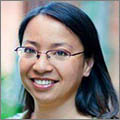 Happy New Year to you from wintry Canada! There are a number of developments on our Toronto gathering that we hope will be helpful to you as you prepare to join us. The registration website is open and ready to go: www.regonline.ca/iams2012. There are already 47 people registered! Happy New Year to you from wintry Canada! There are a number of developments on our Toronto gathering that we hope will be helpful to you as you prepare to join us. The registration website is open and ready to go: www.regonline.ca/iams2012. There are already 47 people registered!
The conference website is also available to help answer your conference-related questions, including helpful links to become a member, Canadian visa information and contact details for the IAMS 2012 travel agent. Please do check back regularly for updates. sites.google.com/a/iams2012.org/toronto-2012/
The subsidy application deadline is coming up quickly, on January 31, 2012 for those who require financial assistance. You will need to be a current IAMS member and complete your registration before receiving a subsidy application form. You can indicate your wish to apply for a subsidy in your registration form.
Visa letters are also ready to be mailed out to those who need Temporary Resident Visas to enter Canada. Again, these will be given to current IAMS members after the registration process is complete. This will help us capture the necessary information from you to complete your visa invitation letter.
Blessings to you,
Ann Chow
Question: Who is eligible to attend Toronto 2012?
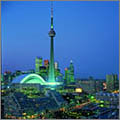 We have received some inquiries from non-IAMS members, wondering whether they can attend the IAMS conference in August. Our response is that all are welcome to apply, but that it may possibly be more difficult for non-members to get through immigration when they come into Canada. Canada Immigration has informed us that the validity of each IAMS letter of invitation and guarantee is contingent upon IAMS familiarity with the person bearing the letter. Unless IAMS has a person’s membership information in its database, the letter of invitation and guarantee will not be as strong, This does not mean that non-members should not apply, but it highlights the advantages of applying as an IAMS member. Non-members interested in attending the conference should be made aware of this, and gently encouraged to take out a one-year membership in IAMS. We have received some inquiries from non-IAMS members, wondering whether they can attend the IAMS conference in August. Our response is that all are welcome to apply, but that it may possibly be more difficult for non-members to get through immigration when they come into Canada. Canada Immigration has informed us that the validity of each IAMS letter of invitation and guarantee is contingent upon IAMS familiarity with the person bearing the letter. Unless IAMS has a person’s membership information in its database, the letter of invitation and guarantee will not be as strong, This does not mean that non-members should not apply, but it highlights the advantages of applying as an IAMS member. Non-members interested in attending the conference should be made aware of this, and gently encouraged to take out a one-year membership in IAMS.
Evening sessions will be open to the public on a paid admissions basis. Given the severe limitations of space at Wycliffe College, and given the considerations outlined above, the August event is primarily an IAMS conference for IAMS members. It’s the one occasion every four years when we can converge from all over the world to talk shop as mission studies academics.
Toronto 2012 Plenary Speakers and Bible Study Leader
Daniel G. Groody
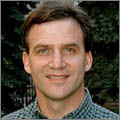 Daniel G. Groody is a Catholic priest, a Holy Cross religious, a scholar, teacher, and an award winning author and film producer. He is currently an Associate Professor of Theology and the Director of the Center for Latino Spirituality and Culture at the Institute for Latino Studies at the University of Notre Dame. Drawing on years of work in Latin America, particularly along the U.S.- Mexico border, he has authored various books and articles which have been translated into five languages, including Border of Death, Valley of Life: An Immigrant Journey of Heart and Spirit, and Globalization, Spirituality, and Justice: Navigating the Path to Peace (2007). He is also editor of two books, The Option for the Poor in Christian Theology (2007), and co-editor of A Promised Land, A Perilous Journey: Theological Perspectives on Migration (2007). He has worked with the U.S. Congress, the U.S. Conference of Catholic Bishops, the World Council of Churches, and the Vatican on issues of theology, globalization, and immigration. Daniel G. Groody is a Catholic priest, a Holy Cross religious, a scholar, teacher, and an award winning author and film producer. He is currently an Associate Professor of Theology and the Director of the Center for Latino Spirituality and Culture at the Institute for Latino Studies at the University of Notre Dame. Drawing on years of work in Latin America, particularly along the U.S.- Mexico border, he has authored various books and articles which have been translated into five languages, including Border of Death, Valley of Life: An Immigrant Journey of Heart and Spirit, and Globalization, Spirituality, and Justice: Navigating the Path to Peace (2007). He is also editor of two books, The Option for the Poor in Christian Theology (2007), and co-editor of A Promised Land, A Perilous Journey: Theological Perspectives on Migration (2007). He has worked with the U.S. Congress, the U.S. Conference of Catholic Bishops, the World Council of Churches, and the Vatican on issues of theology, globalization, and immigration.
Professor Groody holds a Bachelor of Arts from the University of Notre Dame in the Great Books Program, a Master of Divinity and a Licentiate in Sacred Theology from the Jesuit School of Theology, and a doctorate in theology from the Graduate Theological Union. In 2007-2008 he was a visiting research fellow at Oxford University at the Oxford Refugee Centre. He is also the executive producer of various films and documentaries, includingOne Border, One Body: Immigration and the Eucharist, and Dying to Live: A Migrant’s Journey, which have received international acclaim and aired on various television stations including PBS. He teaches courses on U.S. Latino Spirituality, Globalization, Christian Spirituality and Social Justice, and lectures widely in the United States as well as Latin America, Europe, and Asia. dgroody@nd.edu
Emma Wild-Wood
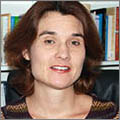 Emma Wild-Wood is Director of the Henry Martyn Centre. As such she is the lecturer in missiology in the Cambridge Theological Federation and an affiliated lecturer of Cambridge University. She teaches courses on Mission, Culture, World Christianity and Christian History. Emma studied Theology at the University of Edinburgh before teaching at the Provincial Theological College of the Anglican Church of Congo and in Uganda as a CMS mission partner. Her PhD study and first book Migration and Christian Identity in Congo (DRC) (Leiden, Brill, 2008) identified migration as significant in the development of churches in Africa. She continues to research African Christianity and has recently co-edited with Kevin Ward, The East African Revival: History and Legacies (Kampala, Fountain, 2010, London, Ashgate 2011). She is also researching the role of first generation migrants in native British churches. She is married with three children and endeavours to practice mission in her local community. Emma Wild-Wood is Director of the Henry Martyn Centre. As such she is the lecturer in missiology in the Cambridge Theological Federation and an affiliated lecturer of Cambridge University. She teaches courses on Mission, Culture, World Christianity and Christian History. Emma studied Theology at the University of Edinburgh before teaching at the Provincial Theological College of the Anglican Church of Congo and in Uganda as a CMS mission partner. Her PhD study and first book Migration and Christian Identity in Congo (DRC) (Leiden, Brill, 2008) identified migration as significant in the development of churches in Africa. She continues to research African Christianity and has recently co-edited with Kevin Ward, The East African Revival: History and Legacies (Kampala, Fountain, 2010, London, Ashgate 2011). She is also researching the role of first generation migrants in native British churches. She is married with three children and endeavours to practice mission in her local community.
Jehu J. Hanciles
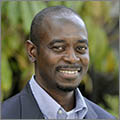 Jehu J. Hanciles, who was born in Sierra Leone, is associate professor of history of Christianity and globalization and director of the Center for Missiological Research (CMR). He came to Fuller as a scholar with Fuller’s Global Research Institute in 1998, and joined the faculty full-time in 2000 after serving in an adjunct capacity. The CMR, newly founded in 2009, houses the PhD program in the School of Intercultural Studies and aims to promote collaborative research among Western and non-Western scholars on emerging missiological issues. The Global Research Institute, which Hanciles directed for almost 9 years, has become a part of the CMR as a postdoctoral fellowship program. Jehu J. Hanciles, who was born in Sierra Leone, is associate professor of history of Christianity and globalization and director of the Center for Missiological Research (CMR). He came to Fuller as a scholar with Fuller’s Global Research Institute in 1998, and joined the faculty full-time in 2000 after serving in an adjunct capacity. The CMR, newly founded in 2009, houses the PhD program in the School of Intercultural Studies and aims to promote collaborative research among Western and non-Western scholars on emerging missiological issues. The Global Research Institute, which Hanciles directed for almost 9 years, has become a part of the CMR as a postdoctoral fellowship program.
A significant component of Dr. Hanciles’ teaching and research focuses on the history, experiences, and expressions of Christianity in the non-Western world. He also has a strong scholarly interest in studies related to the new global context in which Christianity finds itself at the dawn of the new millennium, with newly emerging frontiers, a need for new forms of Christian missionary engagement, and new ways of dealing with old questions. Hanciles’s current research is focused on the interconnection between globalization, migration, and religious expansion: specifically, the ways in which South-North migratory flows provide the structure and impetus for a full-fledged missionary movement from global Christianity’s new heartlands in the non-Western world.
Hanciles has lived and worked in Sierra Leone, Scotland, Zimbabwe, and the U.S. He has written and published books and articles mainly on issues related to mission and globalization as well as African Christianity. Recent publications include Beyond Christendom: Globalization, African Migration, and the Transformation of the West (Orbis, 2008), Euthanasia of a Mission: African Church Autonomy in a Colonial Context (Praeger, 2002), “Missionaries and Revolutionaries: Elements of Transformation in the Emergence of Modern African Christianity” in the International Bulletin of Missionary Research, and “Go to a Land I will Show You: African Migrants and Christian Mission” in Der uberblick. He was born and raised Anglican, but has been connected or involved with a variety of Christian traditions over the past 15 years. He currently lives in the U.S. with his wife and two children.
Mojúbàolú Olúfúnké Okome
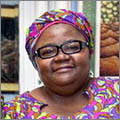 Mojúbàolú Olúfúnké Okome is a professor at the City University of New York’s Brooklyn College. Born in Nigeria, she has 30 years of experience working on international development issues, including with clients such as the United Nations and Grantmakers Concerned with Immigrants and Refugees, the Commonwealth, and UNDP. Her African Diaspora and immigrant philanthropy research include: a Co-edited journal: Ìrìnkèrindò: a Journal of African Migration (www.africamigration.com); West African Migrations: Transnational and Global Pathways in a New Century (edited with Olufemi Vaughan). NY: Palgrave-Macmillan Publishers (forthcoming, January 2012); Transnational Africa and Globalization (edited with Olufemi Vaughan) NY: Palgrave-Macmillan (forthcoming January 2012); “Immigrant Voices in Cyberspace: Spinning Continental and Diaspora Africans Into the World Wide Web,” In Gendering the African Diaspora: Women, Culture, and Historical Change in the Caribbean and Nigerian Hinterland. Judith A. Byfield, LaRay Denzer and Anthea Morrison (eds.) 2010. Indiana University Press; “African Diasporas,” In Diasporas and Development. Barbara Merz, Lincoln Chen and Peter Geithner. (eds). 2010. Cambridge, Mass.: Harvard University Press, Global Equity Initiative; “African Immigrant Churches and the New Christian Right,” In African Immigrant Religions in America. J.K. Olupona and Regina Gemignani (eds.) 2010. New York: New York University Press; and “Emergent African Immigrant Philanthropy In New York City”, J. Krase and Ray Hutchison (eds.) 2005. Race and Ethnicity in New York City (Research in Urban Sociology, Volume 7), Emerald Group Publishing Limited. Mojúbàolú has a doctorate in Political Science from Columbia University, NY; a Master's degree from Long Island University, NY; and a Bachelor’s degree from University of Ibadan in Nigeria. Mojúbàolú Olúfúnké Okome is a professor at the City University of New York’s Brooklyn College. Born in Nigeria, she has 30 years of experience working on international development issues, including with clients such as the United Nations and Grantmakers Concerned with Immigrants and Refugees, the Commonwealth, and UNDP. Her African Diaspora and immigrant philanthropy research include: a Co-edited journal: Ìrìnkèrindò: a Journal of African Migration (www.africamigration.com); West African Migrations: Transnational and Global Pathways in a New Century (edited with Olufemi Vaughan). NY: Palgrave-Macmillan Publishers (forthcoming, January 2012); Transnational Africa and Globalization (edited with Olufemi Vaughan) NY: Palgrave-Macmillan (forthcoming January 2012); “Immigrant Voices in Cyberspace: Spinning Continental and Diaspora Africans Into the World Wide Web,” In Gendering the African Diaspora: Women, Culture, and Historical Change in the Caribbean and Nigerian Hinterland. Judith A. Byfield, LaRay Denzer and Anthea Morrison (eds.) 2010. Indiana University Press; “African Diasporas,” In Diasporas and Development. Barbara Merz, Lincoln Chen and Peter Geithner. (eds). 2010. Cambridge, Mass.: Harvard University Press, Global Equity Initiative; “African Immigrant Churches and the New Christian Right,” In African Immigrant Religions in America. J.K. Olupona and Regina Gemignani (eds.) 2010. New York: New York University Press; and “Emergent African Immigrant Philanthropy In New York City”, J. Krase and Ray Hutchison (eds.) 2005. Race and Ethnicity in New York City (Research in Urban Sociology, Volume 7), Emerald Group Publishing Limited. Mojúbàolú has a doctorate in Political Science from Columbia University, NY; a Master's degree from Long Island University, NY; and a Bachelor’s degree from University of Ibadan in Nigeria.
Dr. M. Daniel Carroll Rodas, Bible Study leader
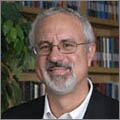 Dr. M. Daniel Carroll Rodas, who celebrates his heritage from both Guatemala and the United States, joined the Denver Seminary faculty in 1996. He currently is Distinguished Professor of Old Testament. He is affiliated with the Evangelical Theological Society, Institute of Biblical Research, Society of Biblical Literature, Society for Old Testament Study (Great Britain), Fraternidad Teológica Latinoamericana, Latin American Studies Association, and Evangelicals for Social Action. He serves on the international editorial boards of Religion & Theology (South Africa) and DavarLogos (Argentina), is a contributing editor to Prism (the journal of Evangelicals for Social Action), and is an editorial consultant for Perspectivas (of the Hispanic Theological Initiative) and Ex Auditu. Dr. M. Daniel Carroll Rodas, who celebrates his heritage from both Guatemala and the United States, joined the Denver Seminary faculty in 1996. He currently is Distinguished Professor of Old Testament. He is affiliated with the Evangelical Theological Society, Institute of Biblical Research, Society of Biblical Literature, Society for Old Testament Study (Great Britain), Fraternidad Teológica Latinoamericana, Latin American Studies Association, and Evangelicals for Social Action. He serves on the international editorial boards of Religion & Theology (South Africa) and DavarLogos (Argentina), is a contributing editor to Prism (the journal of Evangelicals for Social Action), and is an editorial consultant for Perspectivas (of the Hispanic Theological Initiative) and Ex Auditu.
Dr. Carroll earned a Ph.D. from the University of Sheffield, England, a Th.M. from Dallas Theological Seminary, and a B.A. from Rice University.
Prior to his appointment to Denver Seminary as Distinguished Professor of Old Testament, he was professor of Old Testament and ethics and director of graduate studies at El Seminario Teológico Centroamericano in Guatemala City, Guatemala. He remains an adjunct professor there. Dr. Carroll also maintains connections to Latin American theological education through his continuing participation in the accreditation commission of AETAL (Asociación Evangélica de Educación Teológica en América Latina). He was instrumental in the establishment of IDEAL (Instituto para el Desarrollo y Adiestramiento de Líderes), a Spanish language training program at Denver Seminary, and regularly teaches in that program. Dr. Carroll recently was named to the board of the National Hispanic Christian Leadership Conference, which is the Hispanic arm of the National Association of Evangelicals.
He has authored Contexts for Amos: Prophetic Poetics in Latin American Perspective and Amos— the Prophet and His Oracles: Research on the Book of Amos. He has edited Rethinking Context, Rereading Texts: Contributions from the Social Sciences to Biblical Interpretation and Theory and Practice in Old Testament Ethics. Besides co-editing five other books, most recently Character Ethics and the Old Testament: Moral Dimensions of Scripture, Dr. Carroll has contributed to several dictionaries and two one-volume commentaries. He has published articles in Spanish and English language journals, including Kairós, Bulletin for Biblical Research, Tyndale Bulletin, Trinity Journal, Biblical Interpretation, Journal of Latin American Theology, and Religion & Theology. Presently he is working on a major commentary on Amos for the New International Commentary on the Old Testament. His latest book, Christians at the Border: Immigration, the Church and the Bible is a biblical-theological orientation to Hispanic immigration and was recently translated into Spanish.
IAMS Toronto 2012 Subsidy Guidelines
- IAMS is budgeting to provide up to sixty full subsidies to current IAMS members who will be participating in the Toronto 2012 conference.
- Priority will be given to members who will be presenting papers in one of the study group sessions.
- Study groups can nominate subsidy recipients, based on study group criteria, within the larger framework and mission of IAMS.
- Depending upon the availability of funds, each study group will nominate up to six program participants for subsidies. It is hoped that the estimate subsidy value will cover their costs.
- Each full Toronto subsidy covers airfare, provided arrangements are made through our designated travel agent, Menno Travel and approved by the executive. Each full subsidy covers conference fees (registration, lodging, and food).
- Every subsidy recipient will be responsible for his or her visa fees.
- Each subsidy recipient is expected to contribute at least $200 toward the cost of conference registration.
- Every subsidy recipient will be obliged to share a room in facilities provided by conference organizers.
- If more subsidy funding becomes available, the number of subsidy recipients will increase proportionately.
- Each study group coordinator is responsible for tracking the flight costs for his or her recipients with the help of Menno Travel.
- If some study groups do not nominate their quota of recipients, active study groups such as DABOH will have the option of nominating more candidates. We will make this decision in March when we have our executive meeting in Toronto.
- Subsidy application forms will not be made available until an applicant has completed his or her registration form.
Menno Travel Contact:
Connie Kelsey
Email: connie@mennotvl.com
Members of the Canada Hosting Committee
Without the willing and able assistance of local hosting committees, it would be almost impossible for IAMS to convene its quadrennial conferences. We thought our members should be aware of the Toronto hosting committee and the organizations with which they are affiliated. More fulsome introductions may be forthcoming in the future, but for now, here is the list:
- Rev. Canon Dr. George Sumner, Wycliffe College, Toronto School of Theology
- Rev. Dr. David Reed, Wycliffe College, Toronto School of Theology
- Dr. Charles Fensham, Knox College, Toronto School of Theology
- Monsignor A. Robert Nusca, St. Augustine's Seminary
- Rev. Dr. Terry LeBlanc, North American Institute for Indigenous Theological Studies
- Rev. Dr. Kevin Livingston, Tyndale Seminary
- Robert Cousins, BTh, MA, The Tyndale Intercultural Ministries Centre
- Rt. Rev. Mark MacDonald, Anglican Church of Canada
- Rev. Canon Dr. Barry Parker, St. Paul's Bloor Street, Anglican Church of Canada
- Rev. Dr. Andrew Stirling, Timothy Eaton Memorial Church, United Church of Canada
- Rev. Jonathan Schmidt, Canadian Churches Forum for Global Ministries
- Lori Ransom, Truth and Reconciliation Commission
- Peter Rekai, Lawyer, Rekai Frankel LLP
I should add the one person chiefly responsible, behind the scenes, for pulling this committee together and coordinating their work with us is Mrs. Karen Baker-Bigauskas, Assistant to the Principal of Wycliffe College.
IAMS Financial Support Update
Sixteen organizations have so far either pledged or given money in support of international subsidies for the Toronto Conference:
| |
CAD Dollars |
| * Lunds Missonssällskap |
6,300 |
| * Zonneweelde, Netherlands |
6,300 |
| * ASM – USA |
2,000 |
| * AAMS – Australia |
1,000 |
| * OMSC – USA |
500 |
| * Church of Scotland |
1,000 |
| * Marion Breen Foundation |
20,000 |
| * Danish Mission Council |
4,200 |
| * FTESEA, USA |
15,000 |
| * Egede Institute |
2,000 |
| * EMW, Germany |
16,800 |
| * Reformed Church in America |
1,500 |
| * General Board of Global Ministries |
2,000 |
| * The Mission Society |
2,000 |
| * SIM |
1,500 |
| * Presbyterian Church (USA) |
1,000 |
| Total received or pledged |
$83,100 |
The amount of funding received so far is enough for 37 full Toronto conference subsidies. Our goal is to provide subsidies for 60 eligible attendees. As an executive, we are grateful to any members who can direct benefactors to IAMS, especially in support of subsidies enabling scholars from economically bereft regions or institutions to take part in the Toronto 2012 conference.
Of course, the hard figures above only tell part of the story! CMS has generously hosted the IAMS Secretariat for the past three years, providing infrastructural, secretarial and technical support to Cathy Ross. OMSC, my own organization, has underwritten and is underwriting the modest cost of producing IAMS Matters, our bimonthly newsletter. Gerald Anderson has contributed countless hours and expended immense effort—all pro bono—researching and writing what will become the official history of our organization. It is difficult to calculate the financial value of such institutional and individual support, suffice to say that were it not for the support of organizations and individuals such as these, IAMS would be a greatly diminished association.
Jonathan Bonk
President
Email: bonk@omsc.org
Documentation, Archives, Bibliography and Oral History (DABOH):
From Balaton to Toronto and Beyond
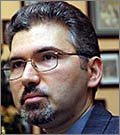 For the past three years, DABOH has been consolidating the progress made at the Balaton Conference “Mission and Memory: Documenting World Christianity in the 21st Century” in 2008. We have made much progress, despite the adverse global economic situation. We are grateful for the IAMS executive committee’s support. The comradeship between the now over 50 DABOH members worldwide also lightens heavy loads. A key meeting was held in May 2010 to discuss DABOH’s future tasks, in particular, to strengthen structural ties with Roman Catholic counterparts, and to pay greater attention to the theological foundation of archives. Those participating included Jonathan Bonk, Michael Poon, Marek Rostkowski, Andrew Walls and Jean Paul Wiest. One of the most constructive outcomes was the appointment of Marek Rostkowski, General Librarian of Pontifical Urbanian University in Rome, as DABOH co-convenor. This appointment underlines DABOH’s ecumenical commitment. For the past three years, DABOH has been consolidating the progress made at the Balaton Conference “Mission and Memory: Documenting World Christianity in the 21st Century” in 2008. We have made much progress, despite the adverse global economic situation. We are grateful for the IAMS executive committee’s support. The comradeship between the now over 50 DABOH members worldwide also lightens heavy loads. A key meeting was held in May 2010 to discuss DABOH’s future tasks, in particular, to strengthen structural ties with Roman Catholic counterparts, and to pay greater attention to the theological foundation of archives. Those participating included Jonathan Bonk, Michael Poon, Marek Rostkowski, Andrew Walls and Jean Paul Wiest. One of the most constructive outcomes was the appointment of Marek Rostkowski, General Librarian of Pontifical Urbanian University in Rome, as DABOH co-convenor. This appointment underlines DABOH’s ecumenical commitment.
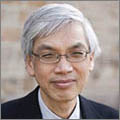 The Rome meeting identified several structural concerns in mission studies that will shape DABOH’s Toronto meeting in 2012, and the more in-depth discussion in an international DABOH congress to be held in Europe around 2014: The Rome meeting identified several structural concerns in mission studies that will shape DABOH’s Toronto meeting in 2012, and the more in-depth discussion in an international DABOH congress to be held in Europe around 2014:
1. The distressing inattention to either the need or the means for documentation and memory preservation in the formation (or theological education) of future pastors in Protestant Christianity and in the wider Christian churches. This lack is reflected in the lack of institutional commitment to documentation and in the waning of historical studies in churches, academic institutions and seminaries. There is a need to develop documentation of world Christianity as a “thick” discipline in academic institutions and seminaries.
2. The lively tension between institutional accountability and ownership on the one hand, and entrepreneurial spirit on the other; both of which are vital to effective documentation in the twenty-first century.
3. The complementary need to rescue the memory of the peoples amid huge human dislocation and relocation, and to offer a moral reading of the shared memory by critical analysis and theological sensitivity. Archivists and historians need to join hands to offer a moral reading of the past. Such study “helps in planning a future founded on the contributions of Tradition whereby memory is also prophecy” (Pastoral Function of Church Archives, 1997).
4. The need to uncover and conserve the new and neglected sources, without which mission studies are not possible. Especially at risk are the grey literature and digital-born sources.
5. The equally distressing observation that mission studies has so far remained to be a trans-Atlantic and greying undertaking. Few centres of documentation exist outside the western world; Western established centres too are at risk due to funding problems. Few younger scholars are able or willing to take up archival work and historical disciplines as a vocation because of the long years of training that are required for such disciplines. Furthermore, stand-alone academics in far-flung places can ill-afford to pay for highly-priced academic journals and microfilms. This poses another obstacle in developing a truly international community of mission historians and teachers in today’s world.
The DABOH sessions in Toronto promise to be lively and packed as ever. Professor Andrew Walls and Don Michael Zielinski have kindly agreed to speak in the DABOH open forum. We also especially invite colleagues who serve in challenged situations to present papers in Toronto. Readers can follow the updates of the DABOH Toronto sessions at www.missionstudies.org/index.php/study-groups/daboh/daboh-sessions-toronto-2012/.
Co-convenors:
P. Marek A. Rostkowski, OMI
Direttore della Biblioteca della Pontificia Università Urbaniana
Email: direttore.biblioteca@urbaniana.edu
Michael Nai Chiu Poon
Director and Asian Christianity Coordinator of the Centre for the Study of Christianity in Asia
Trinity Theological College
Email: mncpoon@gmail.com
Environment and Mission Study Group
 The conference on climate change in Durban in November/December 2011 highlighted once more the complex issues surrounding repercussions of climate change on world population and those living in low-lying areas of the world. There is no shortage of general literature on climate related displacement and forced migration. Some of the literature is rather speculative in nature. The conference on climate change in Durban in November/December 2011 highlighted once more the complex issues surrounding repercussions of climate change on world population and those living in low-lying areas of the world. There is no shortage of general literature on climate related displacement and forced migration. Some of the literature is rather speculative in nature.
The Environment and Mission Study group welcomes papers that address the lack of literature and information on Christian missions/NGOs and Churches and their role and activity related to climate change and displacement issues. Papers are invited which possibly address some of the questions listed below.
- The World Council of Churches has been actively involved with the Pacific Islands of Kiribati and Tuvalu. What documentation is there of the activity of churches in preparing people for adjustment and adaptation to problems related to rising sea levels?
- What is the role of Christian mission and churches in Australia and New Zealand in receiving migrants forced off low-lying Pacific Islands and what type of ministries have they been involved?
- What is the role of churches in protecting people displaced by environmental crises?
- What roles have churches and missions played in responding to the needs of those either temporarily displaced or permanently affected by floods/droughts that have occurred throughout different parts of the world in the past?
- What monitoring has occurred on the role missions are playing in assisting people to adapt to displacement as a result of climate change or environmental disasters?
- What roles are missions and churches playing in promoting climate change education, training and public awareness? How are they relating this to the role and function of mission?
- What is the impact on mental health of people forced to migrate as a result of climate change or other environmental hazards and what has been the service of Christian counselling and Christian mission in this area?
- What roles and functions have missions/churches/NGOs had in ministering to the displaced in the aftermath of the major tsunamis that affected people Indonesia, Sri Lanka, Thailand and the recent earthquake and tsunami in Japan?
- What studies have been done on the role of Christian mission with those displaced in the building of large scale dams or on the state of churches in those areas affected by such major environmental upheaval?
- Claims have also been made by some journalists that a considerable proportion of the rural-urban drift is occurring because of deteriorating environmental conditions in farming areas. In the sub-Saharan African context many of those migrating are associated with churches. What studies are being undertaken to ascertain from Church members their reasons for migration and the role of the Gospel in responding to their needs?
- What is the role of mission and the church in involvement with some of the schemes to reduce the impacts of climate change and thus prevent unnecessary migration, such as the Clean Development mechanism and so on?
- In an effort not to migrate, many rural young men are involved in charcoal production as a way of earning a living. What is the function of missions in working with youth in these types of employment and what examples are there of missions working in effective reafforestation programs?
The Environment and Missions Study Group looks forward to both papers and a lively discussion on some of these issues.
Allison M. Howell
Email: amaryhow@hotmail.com
Allison Howell is an Associate Professor and the Dean of Accredited Studies at the Akrofi-Christaller Institute. She also works with a program on writing Bible Commentaries in Ghanaian languages. She has an ongoing interest and involvement in mission and the environment.
Update: Biblical Studies and Mission
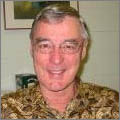 2012 Toronto Conference: by New Year 2012, 22 prospective Toronto participants are preparing papers for presentation during the BISAM Study Group sessions at the IAMS Conference in August. Mainly, though not exclusively, they have been active in the BISAM network. There are eight from Africa, six from Asia, four from North America, and two each from Latin America and Europe. Among them are a few BISAM “veterans”, but also a good number of new faces, some of whom are active in other biblical networks. They come from a wide range of ecclesial backgrounds from Catholic to Pentecostal. 2012 Toronto Conference: by New Year 2012, 22 prospective Toronto participants are preparing papers for presentation during the BISAM Study Group sessions at the IAMS Conference in August. Mainly, though not exclusively, they have been active in the BISAM network. There are eight from Africa, six from Asia, four from North America, and two each from Latin America and Europe. Among them are a few BISAM “veterans”, but also a good number of new faces, some of whom are active in other biblical networks. They come from a wide range of ecclesial backgrounds from Catholic to Pentecostal.
Many of the 22 have already registered for Toronto and have sent in the title and an abstract of their proposed paper. Others are still “in process”! Their titles and abstracts should be sent to Cathy Ross, the IAMS secretary, with a copy also to the BISAM Study Group Convener, at the very latest by the end of January.
Regarding those who have requested a bursary to help with travel expenses, a decision will be made in February 2012 taking into account the quality of the applicant's proposed paper.
The BISAM Network: There are 65 contacts on the BISAM network of whom 18 are living in Europe, 16 in Africa, 11 in Asia, 9 in North America, 8 in Latin America and 3 in Oceania. There are 13 women and 44 men. More women members and an increasing membership from the South would make the BISAM network further representative of the present state of biblical and mission studies today and better reflect both IAMS and the world church.
See the BISAM page on the IAMS website for further details of BISAM activities.
John Prior
BISAM Study Group Convener
Email: johnotomo46@gmail.com
Healing / Pneumatology; Pre-conference Update
Dear friends and colleagues,
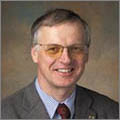 Things are looking great for stimulating sessions and discussions during the upcoming IAMS conference at Toronto this August within the 'Healing/Pneumatology' study-group. Several people have indicated their intention to present respective research-papers for sharing with peers. Some e-mail exchanges revealed great interest especially in topics related to healing.
Things are looking great for stimulating sessions and discussions during the upcoming IAMS conference at Toronto this August within the 'Healing/Pneumatology' study-group. Several people have indicated their intention to present respective research-papers for sharing with peers. Some e-mail exchanges revealed great interest especially in topics related to healing.
This communication is also to encourage others and those who have not submitted a proposal yet, to consider focusing on pneumatological issues, especially when taking the main theme of the conference into account, that is migration and the margins of society as topics for missiological concern. This theme, actually, opens up a host of concerns with regard to questions of accommodation of different worldviews. Do spirits migrate along with their people? What does it mean to leave the land and sites of the ancestors behind and settle in places not protected and guarded by them? Do ancestors and spirits come along with their clans and also with their individual members (refugees!) and adjust to the new setting? If so, in which way do they adjust? What happens, if they don't adjust? How do they change their character and quality? How do they transform into someone/something else? What does it mean to proclaim the Good News that there is the Holy Spirit as one of the persons of the Trinity, whom alone one has to trust for protection and safekeeping? How to guard against superstition? In which way does it make sense to share this with people who are uprooted, if it does make sense to them at all? Etc., etc.
To address this missiological challenge is worth every effort, and I seriously do hope, that members of this study-group will come forward to contribute one way or the other to these burning issues and thereby help IAMS to accomplish its ambitious goal, namely to provide a forum for meaningful exchange of scholars dedicated to contemporary missiology.
Christoffer Grundmann
John R. Eckrich Prof. in Religion and the Healing Arts
Valparaiso University, Valparaiso, Indiana USA
Email: Christoffer.Grundmann@valpo.edu
From the IAMS Treasurer
 Please see previous issue for most recent report. Please see previous issue for most recent report.
David Singh
Treasurer
Email: dsingh@ocms.ac.uk
Migration, Religion and Identity: Missiological Theoretical Issues
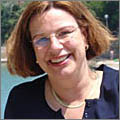 Please see previous issue for most recent report. Please see previous issue for most recent report.
For abstracts (300 words) or questions, please contact:
Prof. Dr. Martha Frederiks (m.t.frederiks@uu.nl)
Dr. Dorottya Nagy (dorottya.nagy@kre.hu)
Prof. Dr. Lalsangkima Pachuau (kima.pachuau@asburyseminary.edu)
Martha Frederiks
Prof. of Missiology: World Christianity and Interreligious Dialogue
Department of Religious Studies and Theology, Faculty of Humanities Utrecht University
Email: m.t.frederiks@uu.nl
World Christianity
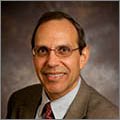 Please see previous issue for most recent report. Please see previous issue for most recent report.
Arun W. Jones
Dan and Lillian Hankey Associate Professor of World Evangelism
Candler School of Theology
Emory University
Email: arun.w.jones@emory.edu
Mission Studies; Journal of the IAMS
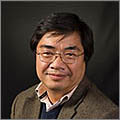 Please see first issue for most recent report. Please see first issue for most recent report.
Lalsangkima Pachuau
Editor
E-mail: editor@missionstudies.org
Gender
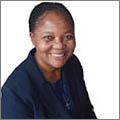 Please see first issue for most recent report. Please see first issue for most recent report.
Rose Uchem MSHR
Regional Representative Africa
E-mail: nkeonyereu4@hotmail.com
Interfaith Issues in Toronto
Please see first issue for most recent report.
David Singh
Treasurer
Email: dsingh@ocms.ac.uk
Response / Opinions / Suggestions
We would like to hear from you.
secretary@missionstudies.org
Executive Members Nominations
Please review the 'Procedure for the election of President, Vice President, and other members of the Executive Committee' in the Byelaws on page 5: www.missionstudies.org/wp-content/uploads/2011/08/iams-governance-manual-v0110811.pdf#page=5.
A Call for Papers for the 13th IAMS Assembly
August 15–20, 2012
Toronto, Canada
Migration, Human Dislocation, and the Good News:
Margins as the Center in Christian Mission
The IAMS 2012 Toronto Assembly will explore the profound missiological dimensions of human migration and dislocation, past, present, and future. We will attend especially to the many repercussions of widespread contemporary human movement for the theory and practice of Christian mission.
 The Hebrew and Christian Scriptures, reflecting the lives of God's people who were uprooted, exiled, and scattered, feature epic experiences of human mobility like the call to a new land, exodus and resettlement, and the scattering of the early Christians. The last half-millennium has seen the Gospel span the globe, often accompanied by the disenfranchisement and sometimes obliteration of other peoples. Dislocation, compelled and voluntary, continues to characterize our contemporary human story as people cross state boundaries or move within their own countries in search of safety or well-being. Christian mission, often a feature of large-scale movements of peoples, must continue to attend responsibly to these historic global realities. The Hebrew and Christian Scriptures, reflecting the lives of God's people who were uprooted, exiled, and scattered, feature epic experiences of human mobility like the call to a new land, exodus and resettlement, and the scattering of the early Christians. The last half-millennium has seen the Gospel span the globe, often accompanied by the disenfranchisement and sometimes obliteration of other peoples. Dislocation, compelled and voluntary, continues to characterize our contemporary human story as people cross state boundaries or move within their own countries in search of safety or well-being. Christian mission, often a feature of large-scale movements of peoples, must continue to attend responsibly to these historic global realities.
We welcome papers on mission and diverse aspects of human mobility from across the disciplines. These can touch upon a range of themes including ethnicity, race, gender, HIV-Aids, human rights, violence, poverty, nationalism, other religion s , and ecclesiastical tradition . In addition, we urge IAMS Study Group members to prepare papers and share research, especially as these relate to the Assembly's migration theme.
Study Groups:
Previous study groups have organized around: Healing and Pneumatology; Biblical Studies and Mission; *Women in Mission; History; *Interreligious Relations; *Globalization and Mission; *Ethnic Minorities and Mission; Documentation, Archives, Bibliography and Oral History; and Environment and Mission. IAMS welcomes suggestions for other thematic groups, and volunteers for facilitating, organizing and chairing study groups that have been inactive (indicated by an asterisk*) since 2008.
Time line:
(1) Proposed topic, with 150–200-word abstract, is due by January 31, 2012.
(2) Draft paper is due by June 1, 2012.
Guidelines for writing paper: Papers are not to exceed 4,000 words, including notes. Writers will be expected to strictly adhere to the Style Guide for Mission Studies:
www.missionstudies.org/index.php/journal/style-guide-for-mission-studies/
Process governing acceptance of paper: All proposals with abstracts will be carefully reviewed by the IAMS Executive Committee, who will finalize the Toronto program at its 2012 February meeting. Writers will be notified of the committee's decision before April 1, 2012.
Address all correspondence to:
The Secretariat International Association for Mission Studies c/o Church Mission Society Watlington Road, Oxford OX4 6BZ, United Kingdom
Tel: +44 1865 787400
Fax: +44 1865 776375
E-mail: secretary@missionstudies.org
|